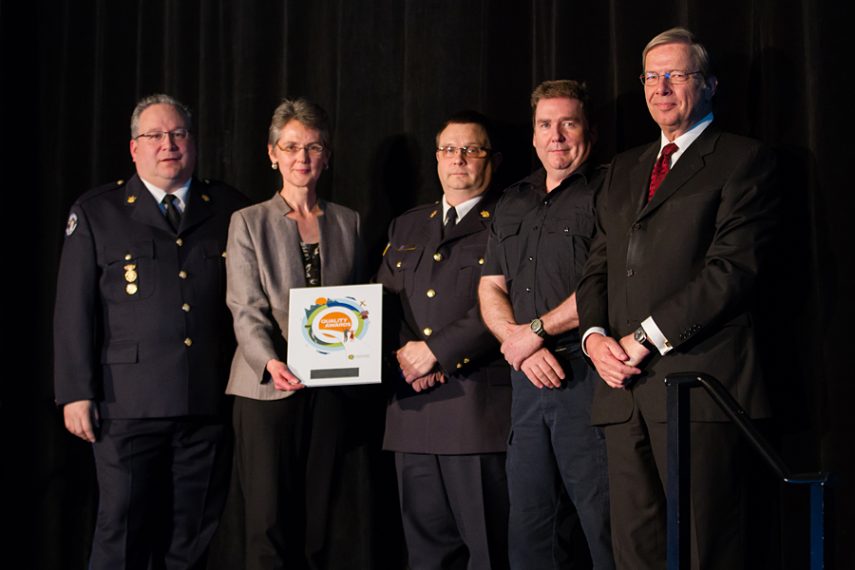- 2012
|
- Winner
|
- Coping with Transition from Life
This award was formally named “Coping with End of Life”. Our Excellence in Quality category names changed in 2020 to reflect the updates to our BC Health Quality Matrix. Visit our Categories and Criteria page to find out more.
Breaking the news of a loved one’s death is never easy, and BC Ambulance Service paramedics are increasingly being called upon to deliver notifications in the field, at the scene of a trauma, and in patients’ homes surrounded by family members. It is an intense professional experience that also requires compassionate care and patient confidentiality. This situation can be made even more difficult in rural communities where paramedics may know the patients or their family members personally.
But until recently, primary care paramedics throughout the province did not have any training on how to deliver or deal with death notifications and how to care for the family members that are being notified.
In June 2011, the Clinical Education program within the Emergency and Health Services Commission began developing an educational course with the BC Ambulance Service and external agencies, including Mothers Against Drunk Driving of Canada. The Dealing with Death and Dying course provides paramedics and emergency medical responders with processes and tools for sharing the news of a loved one’s passing with his or her family members. This helps family members begin the grieving process and helps paramedics and emergency medical responders, as health care professionals, cope with the trauma of losing a patient.
Every primary care paramedic and emergency medical responder will be taking the course as part of a yearly requirement towards 24 hours of continuing medical education. Course content was developed through feedback from focus groups and interviews with paramedics and it incorporates role-playing and realistic videos.
Qualitative feedback on this program attests to its effectiveness. In evaluations after taking the course, participants have said it “gives a better understanding of being human in a professional practice,” and “I will be much more confident in dealing with one of the most difficult situations for us to be in.”
The EHSC and BC Ambulance Service are already fielding inquiries from across North America regarding the course’s availability and the course’s development team is freely offering advice, outlines, materials and training components.


